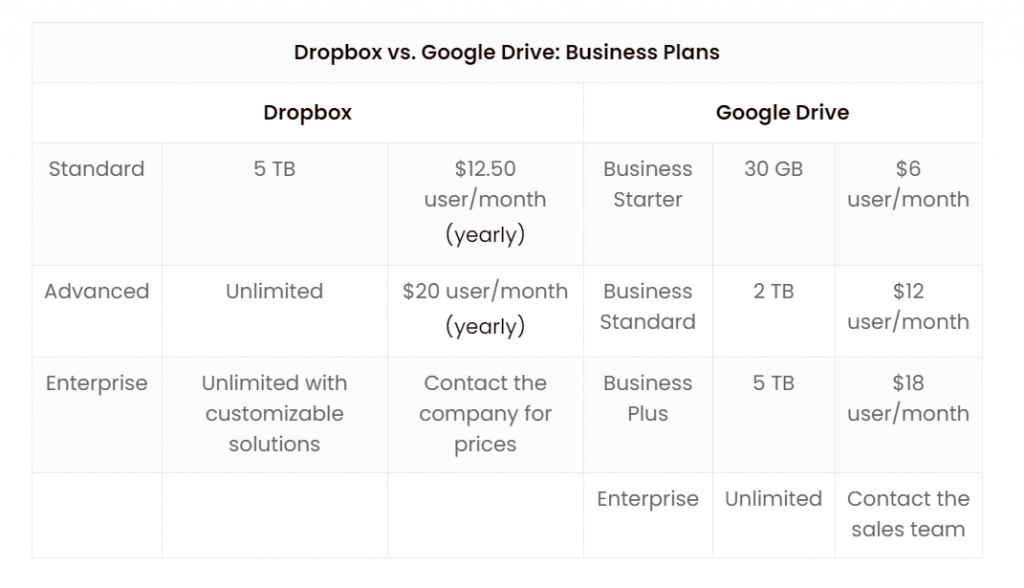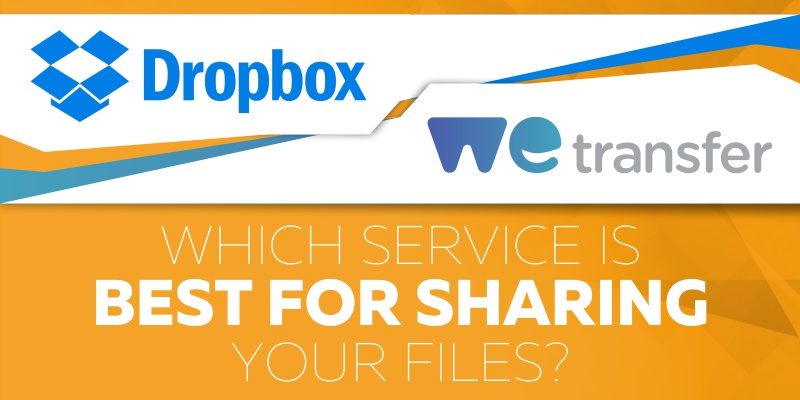

The Business and Enterprise plan offer additional features, such as archive and retention policies for email and chat. In addition to the usual synchronisation and sharing facilities, the service includes access to the G Suite online applications: Docs (word processing), Sheets (spreadsheet), Slides (presentation), Forms (data collection), business email and calendar, Hangouts Meet (video conferencing), administration and security tools, and more.

Plans are discounted if you pay annually, but there is a minimum of three users. Then there's the $33 advanced plan with “as much space as needed”.

Dropbox Business plans start with the standard plan providing 2TB for $21 per user per month. The company is increasingly focussing on the business market, however. The Plus plan offers 1TB for A$11.58 per month. Practically synonymous with cloud storage, Dropbox offers 2GB of free storage space for individuals, although you can bump that up with referrals. Note that for multi-faceted services such as Google Drive and OneDrive, the available storage generally has to cover other services such as email, as well as files. The Enterprise plan (price on application) adds some high-end management and integration features, and importantly for some allow the use of the extra-cost Box Zones feature to store data in Australia (more precisely, in Amazon's Australian data centres).Īll business plans include secure storage, mobile access, desktop synchronisation, two-factor authentication (for better security) and file versioning (so if a file is inadvertently or maliciously changed, you can recover an earlier version). SSO allows users to access multiple systems without having to log in to each separately. The minimum is still three users, but it also includes support for single sign-on (SSO) and other integrations. The regular Business plan provides unlimited storage for $20 per user per month with a 5GB upload limit.


 0 kommentar(er)
0 kommentar(er)
